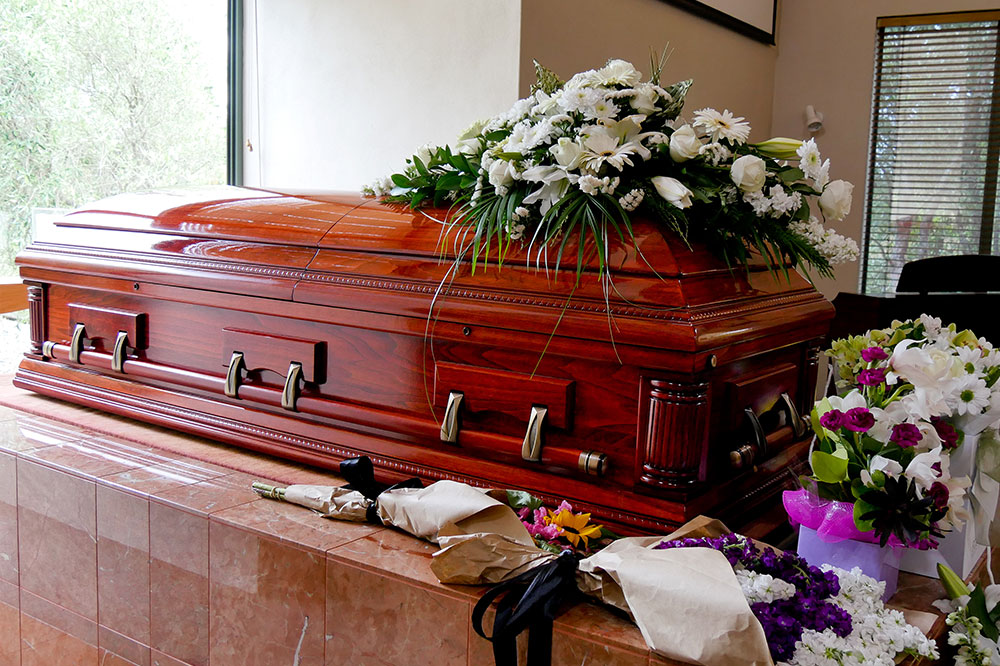The Complete Guide to Funeral Expenses and Planning: What You Need to Know
Planning for funeral expenses is crucial to manage costs and honor loved ones properly. This comprehensive guide discusses average costs, service options, financial planning tips, and how to find reputable providers. Understanding these details can help families make informed decisions during difficult times, prevent overspending, and ensure the funeral reflects the deceased’s wishes, all while managing financial burdens effectively.

The Complete Guide to Funeral Expenses and Planning: What You Need to Know
Experiencing the loss of a loved one is an emotionally taxing event that requires a lot of preparation, including financial planning. Many families find themselves overwhelmed not only by grief but also by the financial responsibilities that come with funeral arrangements. Understanding the various costs involved and knowing how to plan ahead can significantly ease this burden during a difficult time. This comprehensive guide aims to provide detailed insights into funeral expenses and practical tips for planning, ensuring families can manage costs wisely while honoring their loved ones appropriately.
What Are the Typical Funeral Expenses?
As of 2024, the average cost of a funeral in the United States surpasses $10,000, and this figure can vary widely depending on numerous factors. Costs are influenced by geographic location, the range of services selected, the type of funeral service, and optional extras that families choose to include. Understanding the breakdown of the expenses helps families make informed decisions aligned with their budget, values, and preferences. Funeral expenses generally fall into three main categories: basic costs, service charges, and vendor payments for essential items and services.
Location is a key determinant of how much funeral services will cost. For example, in Hawaii, the costs are notably higher, with average basic funeral expenses reaching around $15,000. This includes essentials such as caskets, funeral director fees, embalming, ceremonies, and transportation. These high costs reflect regional differences in service prices, labor costs, and general living expenses.
Additional optional services, such as floral arrangements, obituary notices, clergy, pallbearers, and musical performances, can significantly add to the total expenditure. Many of these extras are paid out-of-pocket and vary based on personal preferences and cultural practices.
Different Types of Funeral Services
Families are often faced with choosing between burial and cremation options, both of which have distinct costs and considerations. Often, these choices are influenced by the deceased's wishes, religious beliefs, cultural traditions, and financial constraints. Funeral homes are equipped to handle various types of ceremonies, accommodating large gatherings or intimate farewells. Here’s an overview of what families should consider when planning:
Body Preservation
Embalming is a process that preserves the body for viewing and funeral services. While it helps maintain a lifelike appearance, embalming is not legally mandatory in most jurisdictions. The typical cost is around $800. Some families opt for cremation shortly after passing, which reduces overall expenses.
Traditional Funeral and Burial
A standard funeral usually involves a casket, which is one of the most significant expenditures. Entry-level caskets made of wood can start at approximately $2,500, but premium options crafted from mahogany or metals can easily exceed $10,000. Buying directly from the funeral home or exploring online options may help save money while ensuring quality.
Burial Services and Grave Preparations
Burial vaults or grave liners are designed to prevent soil collapse. Vaults are more comprehensive, encasing the casket entirely, and generally cost more. These services entail labor, materials, and transportation fees, and their use is optional but often recommended for long-term maintenance of the burial site.
Cremation Processes
Cremation offers a more affordable alternative, with average costs under $5,000, which often include transportation, basic preparation, and the cremation itself. Additional expenses can include urns, memorial services, and catering for guests. Cremation is increasingly popular due to its flexibility and cost-effectiveness.
Engaging friends and family in planning and expense-sharing can help minimize costs and eliminate middlemen, resulting in more personalized and less costly funeral arrangements. Funds saved can be redirected toward enhancing the quality of services or covering pre-paid arrangements.
How to Manage Funeral Expenses
Over the past three decades, funeral costs have surged over 200%, emphasizing the importance of financial planning. To prepare effectively, families can explore multiple options, including:
Obtaining a funeral loan from financial institutions or specialized providers that offer credit options.
Signing up for pre-paid funeral plans with reputable funeral homes to lock in prices and guarantee services.
Utilizing military death benefits for eligible veterans.
Setting up Payable-on-Death (POD) savings accounts to ensure immediate access to funds upon death.
Investing in life insurance policies specifically designed or designated for funeral costs, providing peace of mind and financial security.
Funeral Insurance Options
Many insurance providers offer policies tailored to cover funeral and burial expenses. Premium rates vary based on age, health, and coverage amount. For seniors over 60, premiums can start as low as $18 per month, with higher coverage plans costing around $116 monthly at age 70. Health status, gender, and existing medical conditions influence eligibility and pricing. These policies typically provide coverage from $5,000 to $20,000, with options for simplified underwriting or no medical questions required.
It’s important to note that current health issues or chronic illnesses may limit immediate eligibility for some policies; therefore, shopping around and understanding policy terms is essential.
Finding Reputable Funeral Providers
To ensure quality and transparent service, families should research local funeral homes and cremation providers. Online directories, such as the Funeral Homes Network, accredited by the International Cemetery, Cremation & Funeral Association (ICCFA), facilitate comparisons by location, services offered, and insurance acceptance. Verifying credentials, reading reviews, and requesting quotes are vital steps to select a trustworthy provider that aligns with your budget and wishes.




